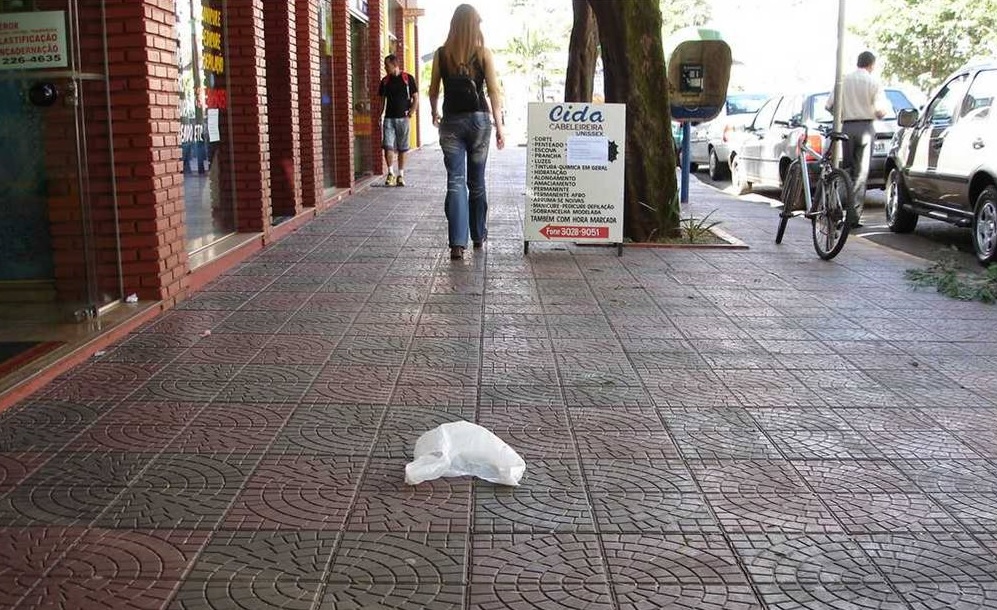Entrevista concedida pela FUNVERDE para a revista HM! sobre as malditas sacolas plásticas de uso…
Failsafe degradable plastics
Look at the full life-cycle, and biodegradable plastic derived from oil has a more positive environmental image than rivals are prepared to give, Sean Hargrave discovers.
Discarded plastic waste is an eyesore: drive down any street, bathe on any beach or stroll any country lane and shopping bags, bottles and wrappers can be seen caught in trees or littering the pavement and verges.
The way plastics suppliers, retailers and campaigners have tried to deal with this highlights how environmental issues need to be looked at from a whole life-cycle perspective and how the description of litter as a behavioral issue is not a good enough answer.
This is certainly the opinion of Symphony Environmental Technologies. The AIM listed British company produces d2w additive, which speeds up the degradation of plastic, usually to 18 months, though shorter or longer times are possible. The d2w is added at the factory and shortens the molecular chains, which microorganisms can then break down, until the item completely biodegrades without releasing methane or other harmful chemicals.
This would appear to be very useful but, for some, the technology is unacceptable because it works with oxo-biodegradable plastics which derive from oil, rather than bio-based plastics made typically from cornstarch.
Full life cycle
Such sentiment appeared in a recent report from Loughborough University, funded by Defra.
However Michael Laurier, CEO of Symphony, believes the researchers did not fully understand the benefits of oxo-biodegradable plastics. This he believes could be because companies in the oxo-biodegradable industry were not given enough opportunity to contribute, and no opportunity to question the recommendations prior to publication.
There seems to be a misconception that if something is grown it’s somehow more environmentally friendly and I don’t think this research took the opportunity to challenge that and to look at the full life cycle.”, he says.
“Our plastics are made from a by-product of oil which used to be discarded. Unlike corn, you don’t have to clear fields and forests to grow it, to burn diesel ploughing and planting and then sending the crop for polymerization, and shipping it all over the world. Germany’s Institute for Energy and Environmental Research has concluded that oil-based plastics, especially if recycled, have a better life-cycle Analysis than bio-based plastics.”
Failsafe option
What Laurier found puzzling about the report was that it praised bio-based plastics for their compostability but, “It’s very odd for a report to say our plastics can’t be composted – when it’s not a claim we make.”
“That’s for a very good reason. The report itself quotes a composting company saying they don’t want post-consumer plastic of any kind because they would have to make sure that compostable plastic had been separated from ordinary plastic.
“The researchers say our plastics don’t biodegrade quickly enough, but quickly enough for what? We programme the products to degrade in 18 months because that’s what the retailers have asked for. We can speed this up but supermarkets want the products to have a useful working life, during which many of them can be re-used – 18 months is a lot better than 50 years out in the environment.”
Laurier believes the point of oxo-biodegradable plastic has been completely overlooked. Products containing the d2w additive can be recycled (see www.biodeg.org/positionpapers/recyclingl?domain=biodeg.org) but as composters and many recyclers are not keen to receive contaminated post-consumer plastic film one has to accept that a lot of plastic will end up in landfill. Although it will actually occupy less than 5% of total space perhaps it should be sent instead to modern incinerators, which do not cause pollution.
Even worse – in the real world much of it will be discarded where it cannot be collected and could lie or float around for decades. The government has no policy for dealing with it.
Fragments of d2w oxo-biodegradable products are no longer plastic and can be bioassimilated in the same way as a leaf
Then the obvious question, Laurier poses, is “what is wrong with a failsafe mechanism in the plastic to ensure that, as long as it has oxygen around it, it will disintegrate into fragments which are no longer plastic and can be bioassimilated in the same way as a leaf?”
Countries taking action
While the UK has not legislated to encourage biodegradable plastic, several countries have taken action.
In Hungary, Slovenia, Romania, Montenegro, Argentina and Brazil there are incentives for plastics which can biodegrade, and the United Arab Emirates passed a law at the start of the year to say that all plastic bags must be oxo-biodegradable.
“The major European countries and the US haven´t understood the technology yet, but the United Arab Emirates looked at it carefully and realised it was sensible to go for the fail-safe option,” adds Michael Laurier, CEO of Symphony.
Fonte – http://www.climatechangeandthefoodsupplychallenge.com/ClimateChangePages/index.html




Este Post tem 0 Comentários